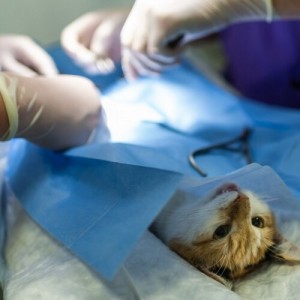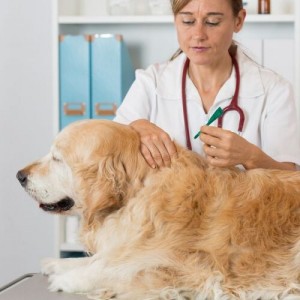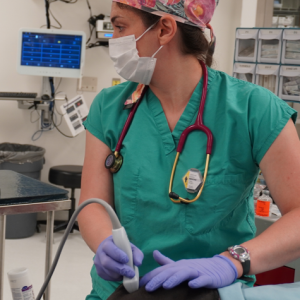Bird flu kills 10 California condors
The U.S. Fish & Wildlife Service announced on April 17 that Highly Pathogenic Avian Influenza (HPAI) has been confirmed as the cause of mortality for 10 California condors found in northern Arizona.
Previous news that three condors were killed by HPAI was reported by CIDRAP, the Center for Infectious Disease Research & Policy at the University of Minnesota and science reporter Amy Maxmen, who writes for Nature and the New York Times.
Twenty condors have died in the Arizona-Utah flock, according to the U.S. Fish & Wildlife Service. HPAI has been confirmed for 10 of those condors. Eight birds were captured and brought in for supportive care. Four of those condors died shortly thereafter and are included in the total of 20 deceased birds.
View the latest updates online from the U.S. Fish & Wildlife Service.
The Arizona-Utah population moves throughout northern Arizona and southern Utah, using the landscape within Grand Canyon National Park, Zion National Park, Vermillion Cliffs National Monument, the Kaibab Plateau, and surrounding areas. To date, the virus has not been detected in the other condor populations in California or Baja California, Mexico, according to the NPS news release.
On March 9, The Peregrine Fund, which manages the Arizona-Utah condor flock, first observed a bird in the wild exhibiting signs of illness, initially suspected to be lead poisoning. Crews continued to monitor this bird and others showing similar behavior. On March 20, they collected the deceased female below her nest, which was the first bird confirmed positive with HPAI.
Upon collection, the bird was went to the U.S. Fish and Wildlife Service’s Clark R. Bavin National Fish and Wildlife Forensics Laboratory for necropsy to determine the cause of death. Oregon Veterinary Diagnostic Lab analyzed samples, and preliminary results indicated the bird tested positive for HPAI subtype H5N1. The positive result was confirmed by the U.S. Department of Agriculture’s National Veterinary Service Laboratory on March 30.
As of April 4, a total of three deceased birds have been retrieved and confirmed as HPAI positive. Test results are not yet final for five additional deceased birds. Others have been collected and are pending necropsy and testing; information will be provided once test results are available.
Additionally, five birds displaying signs of illness were captured by The Peregrine Fund and sent to Liberty Wildlife in Phoenix, Ariz., for care. One of the birds died shortly after arrival. The remaining four are in quarantine while samples are tested for HPAI. Any additional live or deceased condors collected in Arizona and Utah will be treated as HPAI suspected cases. Live birds will be transferred to appropriate facilities to receive care.
California condor populations face multiple stressors, such as exposure to lead shot and habitat degradation, that have reduced the resiliency of the population. To address the unfolding threat of HPAI, coordination is ongoing with avian influenza experts, veterinarians, and Tribal, state and federal partners across the condor’s range. California condor recovery partners are mobilizing resources and taking preemptive steps to protect wild birds from HPAI. Across the condor’s range, daily activities continue, such as captive breeding and the monitoring of breeding and nesting sites.
Potential exposure of HPAI is expected to rise during the spring migration of birds north to their breeding grounds. HPAI has been detected in all U.S. states, except Hawaii, in wild and domestic animals.HPAI is considered low risk as a human health concern, according to the Centers for Disease Control; however, infections in humans have been reported. HPAI is highly contagious in wildlife and can spread quickly by several routes, including bird-to-bird contact, environmental contamination with fecal material, and via exposed clothing, shoes and vehicles. To protect people and birds, it is important to take precautions to prevent spread of the virus.
Ways to help
If you see a condor exhibiting any of the following signs of illness in Arizona or Utah, please contact The Peregrine Fund at 585-747-5885. Signs include lethargy, incoordination, presenting as dull or unresponsive, holding head in an unusual position, and walking in circles.
Please follow the below guidance to help limit the spread of the virus and avoid bird-human contact:
- To report dead or sick animals, please contact your state wildlife agency.
- Keep your family, including pets, a safe distance away from wildlife.
- Do not feed, handle or approach sick or dead animals or their droppings.
- Always wash your hands after working or playing outside.
- Prevent contact of domestic or captive birds with wild birds.
- Leave young animals alone. Often, the parent animals are close by and will return for their young. For guidance on orphaned or injured wild birds, please contact your nearest wildlife rehabilitation center, state wildlife agency, or local land management agency.
- USDA also has biosecurity guidance for people who keep backyard poultry.
This announcement was coordinated with The Peregrine Fund, Liberty Wildlife, Arizona Game and Fish Department, Utah Division of Wildlife Resources, National Park Service, and Bureau of Land Management. The California Condor Recovery Program is an example of how a species can be brought back from the brink of extinction through the power of partnerships including federal and state government, Tribes, non-governmental organizations, and a partnership with Mexico.
Editor's note: This story was updated with new information on April 28.













List
Add
Please enter a comment